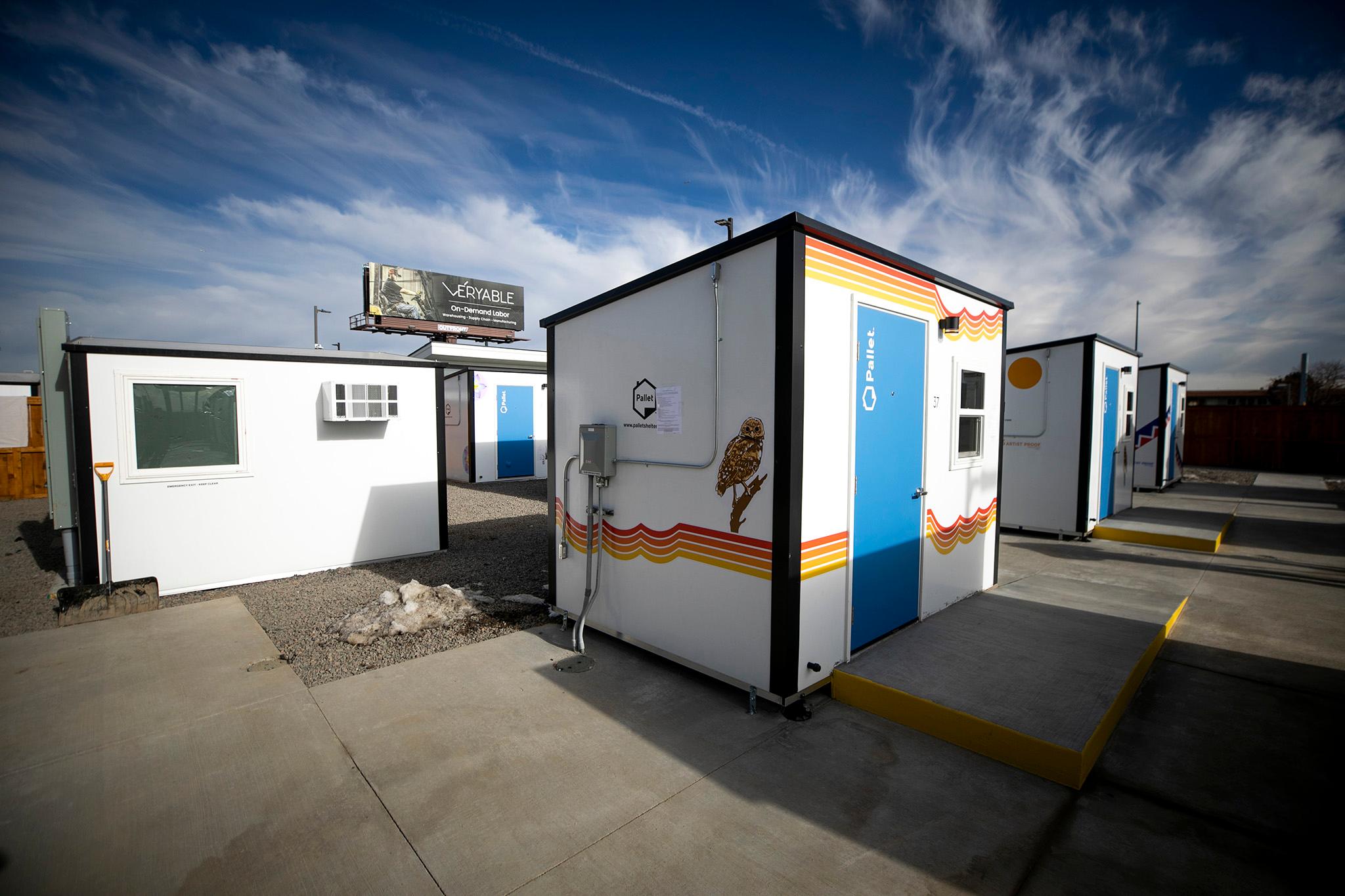Had Denver Mayor Mike Johnston met his House1000 goal to bring 1,000 people from homeless encampments indoors by New Year's Eve?
That was the question on the minds of Earnest Campbell, who grew up in East Denver, and his friends living at an encampment at Arkins Ct. in the River North Art District. The group, mostly in their twenties, chatted about Johnston's goal as they huddled around a fire burning in an old oil drum, warming their hands while taking a break from packing their belongings in yellow bags.
Campbell, a Metro State University alum who studied financial services, works at a temp agency for $100 a day.
"I fell into homelessness because of price increases," he said. "The prices of homes are just too much."
Moving day had arrived, and Campbell hoped his time experiencing homelessness would be over soon.
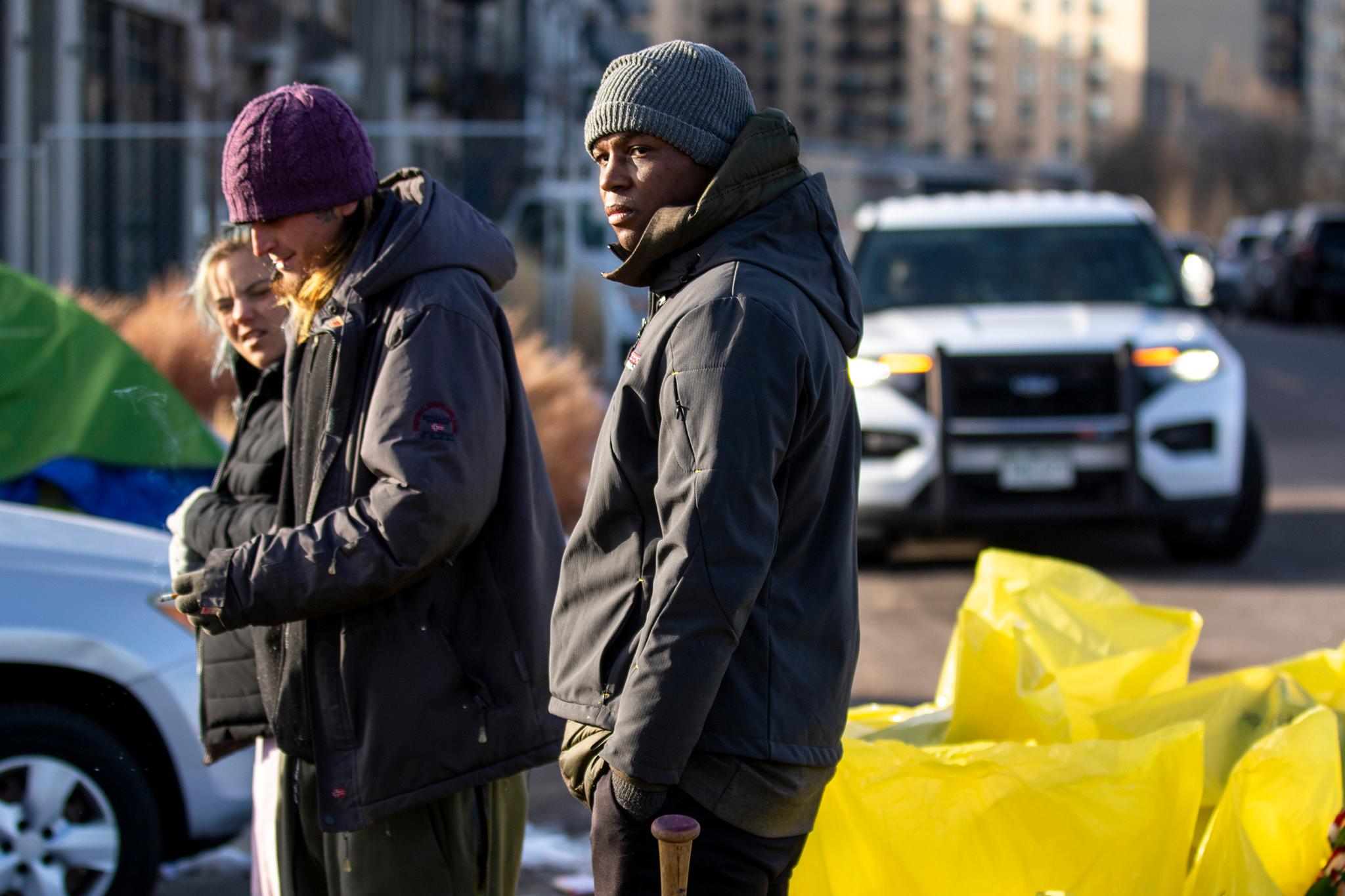
For a week, outreach workers had been drawing up a list of names. Campbell and friends been equipped with yellow trash bags. And they were eager to no longer be rotating between the streets and shelters.
Most didn't know where they were headed; They just knew that they'd have a door to close and a little privacy. They knew it wouldn't be perfect. But it would be better than the group shelters and the restrictive social service programs that had taken them in only to kick them back to the streets again and again -- a practice Campbell said was "enabling chronic homelessness."
Soon, he and his friends would be boarding buses and heading to city-funded individual shelters at a new microcommunity in the parking lot of a former Stay Inn hotel and at a former Comfort Inn.
From there, hopefully they could find permanent housing, they said. Some wanted to reunite with their children and families. Campbell hoped to get a good-paying job and leave the bleak experience of life on the streets behind him.
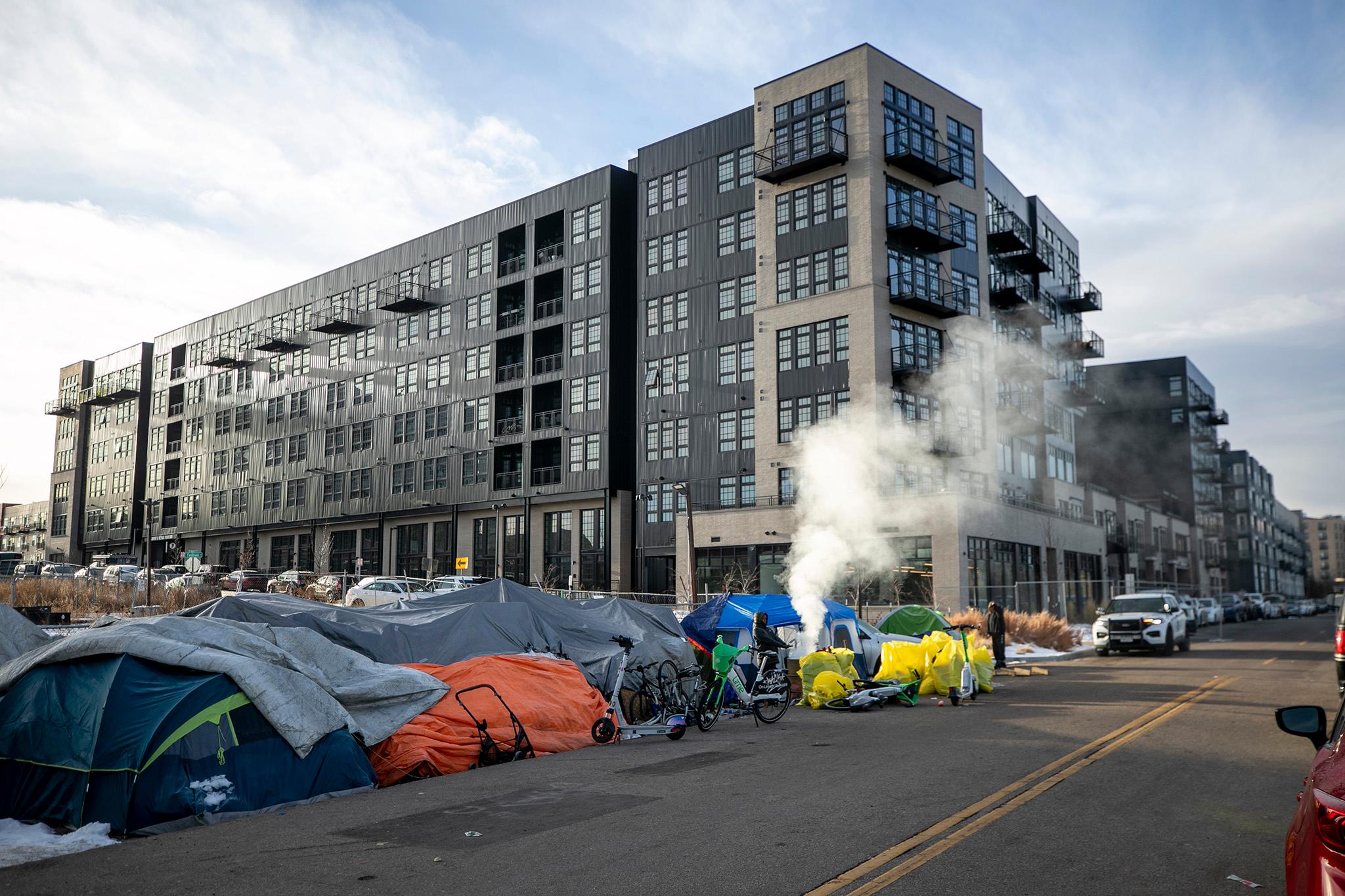
While they prepared to move, Mayor Mike Johnston and city brass gathered in front of TV news cameras across town to open the first House1000 tiny-home microcommunity for unsheltered Denverites and to celebrate his largest victory since the election.
"I am proud to announce that as of yesterday, the city succeeded in under six months moving more than 1,000 people off the streets," he told the crowd. He had made the promise in July, on his first full day in office, and he and multiple city departments have focused on it for months.
By Jan. 1, 2024, the mayor anticipates roughly 1,100 people who had been living in encampments will be sheltered in various city shelters.
The new microcommunity had been built behind a fence in the parking lot of the former Stay Inn at Peoria St. and 38th Ave. Traffic roared by.
There sat a cluster of white shed-like tiny homes, each furnished with a bed, a desk, and most significantly, privacy. There were private shared bathrooms with showers and a community building. The tiny homes had been decorated by the Artist Proof Collective.
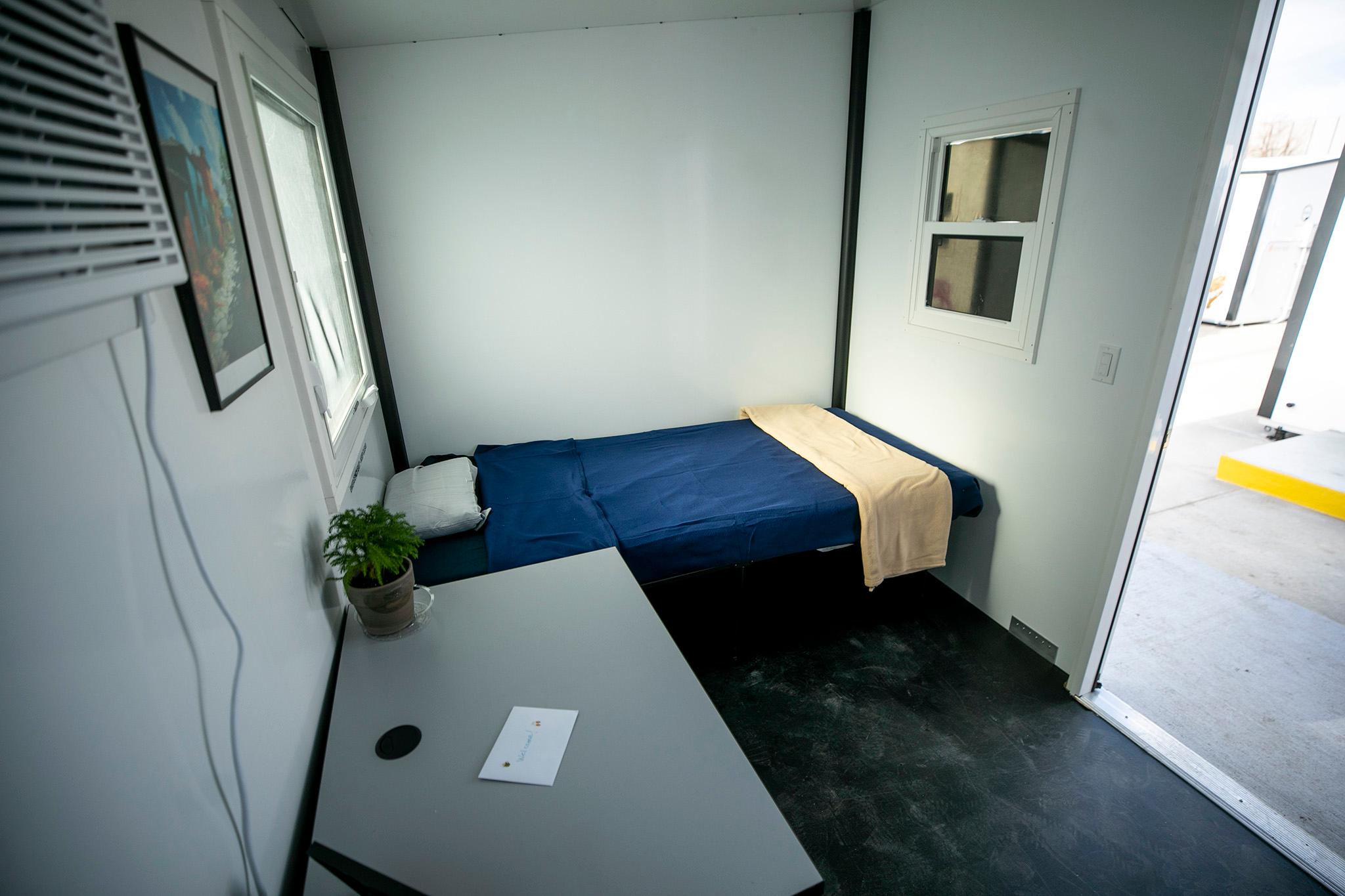
Cole Chandler, Johnston's Senior Advisor on Homelessness and a longtime advocate of using tiny homes as part of the solution to homelessness, described the space as "joyful."
Johnston's campaign, called House1000, has been the nearly singular focus of Johnston's first half-year in office.
While Denver has not technically housed 1,000 people by Dec. 31 by federal or city standards, the city brought them out of encampments and indoors to facilities where case managers and social service providers hope to be able to help them secure greater stability and longer-term housing.
The city's updated dashboard tracking success states that 1,034 people have been brought inside. Of those, 98% are still indoors. A quarter have found permanent housing.
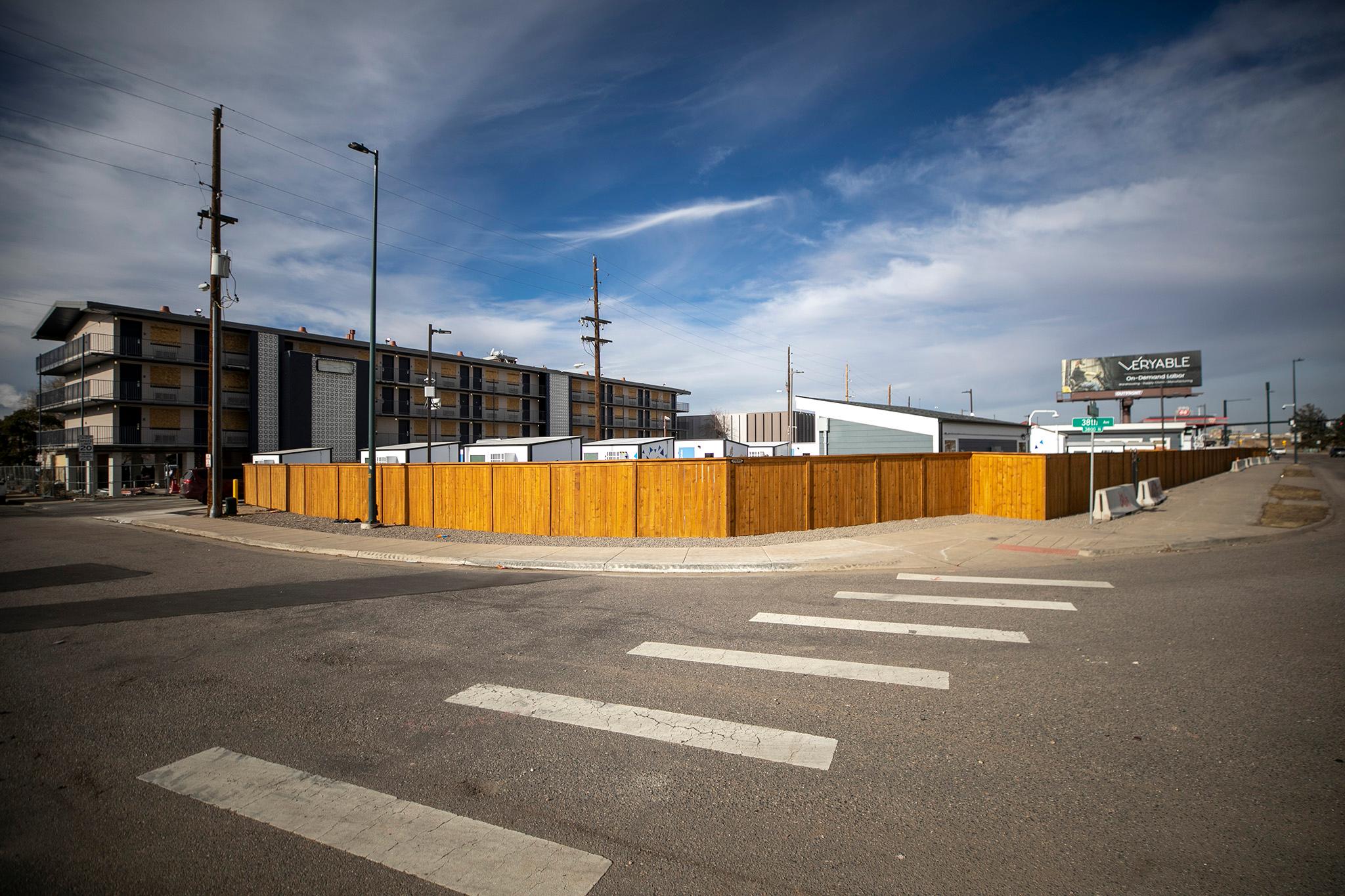
In his run for mayor, Johnston pledged such microcommunities would allow him to rapidly bring people inside from the streets.
Johnston's held over 60 community meetings about House1000, taken lashings from members of the public and worked diligently to open hotels, motels and tiny homes where people can live in the short term and find long-term housing and stability.
While he's continuing to open some tiny home villages, the administration has largely created shelter -- and will continue to do so with more focus -- in former hotels and motels that are cheaper and quicker to open.
Many of these have been legacy projects from Mayor Michael Hancock's administration, though Johnston has worked to bring them online faster than they otherwise would have been, HOST spokesperson Sabrina Allie recently told Denverite.
The microcommunity was one of the many new shelters in District 8. Councilmember Shontel Lewis says the neighborhoods she represents are setting an example for how the rest of the city could assist in helping house people.
"We should continue to follow the lead of love, navigating the conversations around helping our homeless take intentional steps towards a better collective life," Lewis said. "We should, we will, and we can."
"And it's only the beginning," she added. "The work most certainly does not stop here. Sheltering 1,000 people on the pathway to permanent housing is certainly a worthy accomplishment. But we all see that there's so much more we're going to need to get done."
That includes helping the thousands of migrants arriving from the southern border, hundreds of whom have been bused into Denver by the State of Texas each week.
There are currently more than 4,300 migrants in shelters, longing to work and barred from doing so by federal laws -- restrictions Johnston, along with the mayors of New York and Chicago, is combatting. Other migrants in Denver are living on the streets.
"We are dynamic enough to help both the migrants seeking refuge here and our unhoused at the same time," Lewis said.
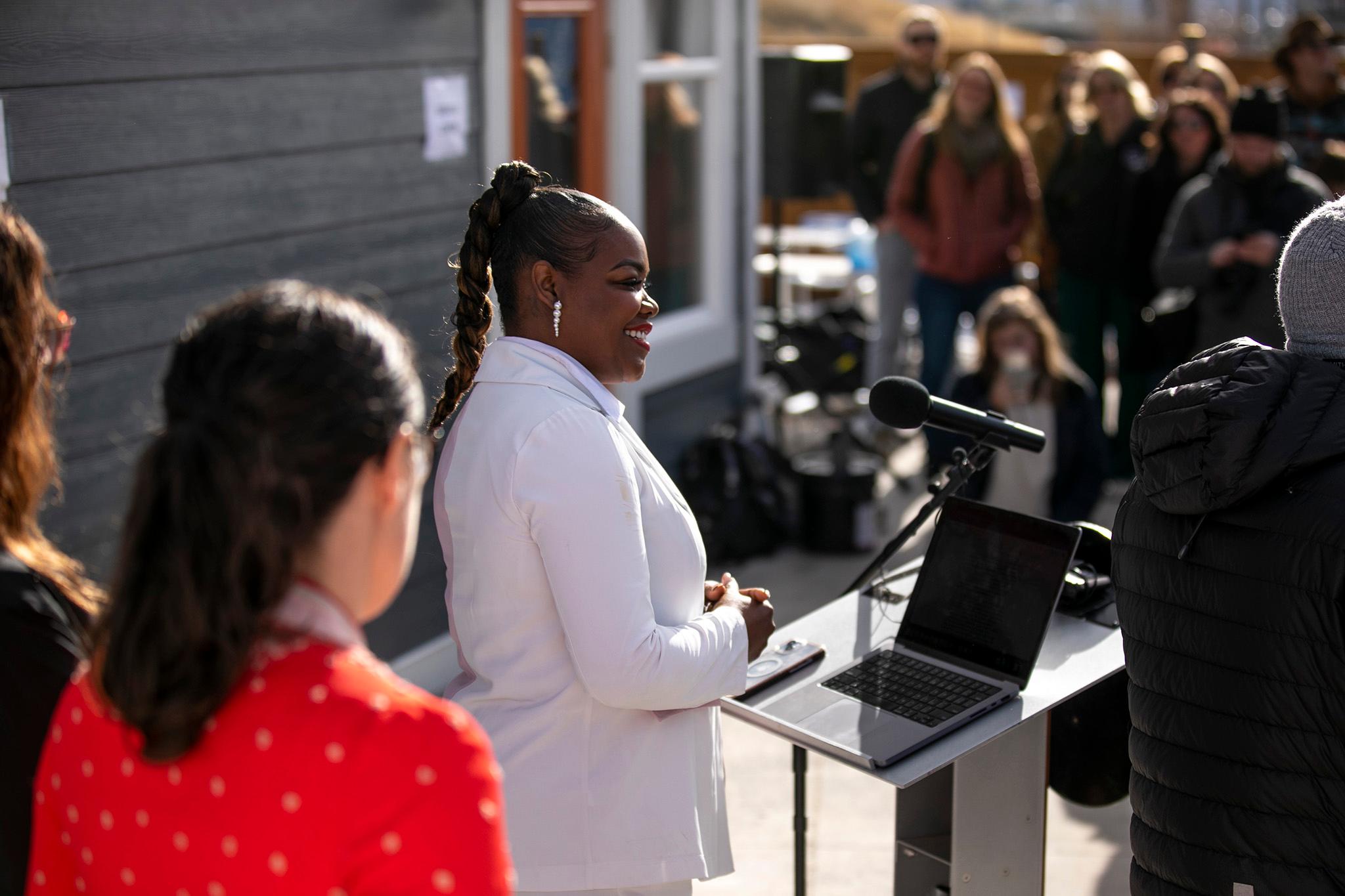
For Johnston, the success of House1000's first six months is proof that Denver can solve problems -- and the beginning of much more work to be done.
"This was actually never about a number," Johnston said. "It was about the urgency that we knew people deserved, to be able to say, 'We can't afford to wait.' Because every night that someone's at risk of freezing to death on the city streets, that's not good enough for us. And we also know, as Councilmember Lewis said, that the work is just beginning."
Next year, Johnston's pushing for the city to bring an additional 1,000 people into individual shelters and to create a path to long-term housing for those already indoors.
To do so, he's working to create 3,000 units of income-restricted housing in the city in 2024 -- a goal he acknowledged to Denverite is even more ambitious than housing 1,000. In total, the city is behind 60,000 units of income-restricted housing and growing, according to the latest data Denver Housing Authority provided to Denverite.
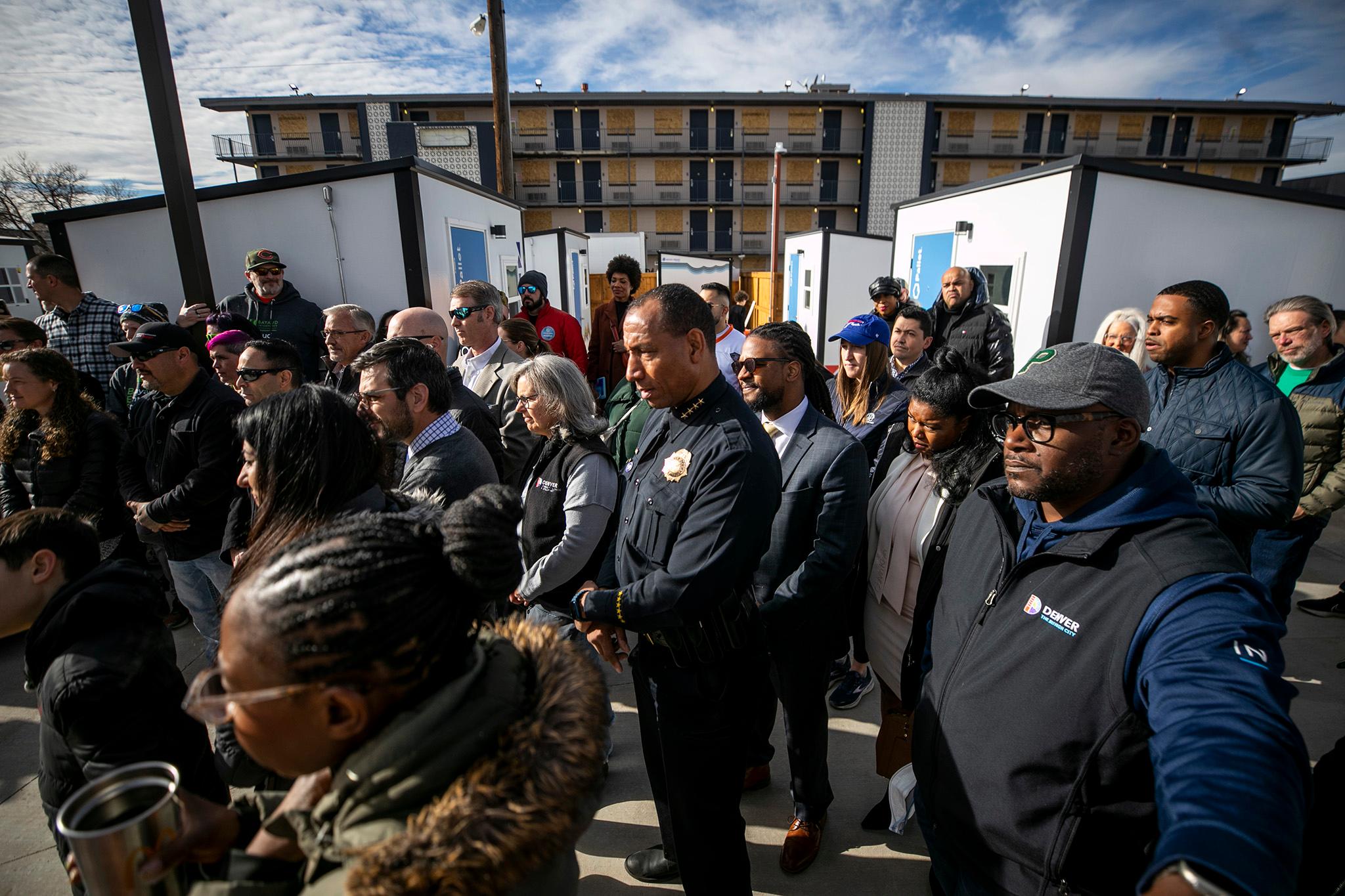
Ultimately, Johnston has pledged to end homelessness and ensure that if and when it occurs, it should only be "short and rare and safe."
And it's not just unhoused people struggling to stay sheltered and continue to live here.
"We also know that we have more to do to make sure there are affordable units for every working family in the city," he said. "So if folks want to get into permanent housing, they can find the unit. We will start that work again today."

